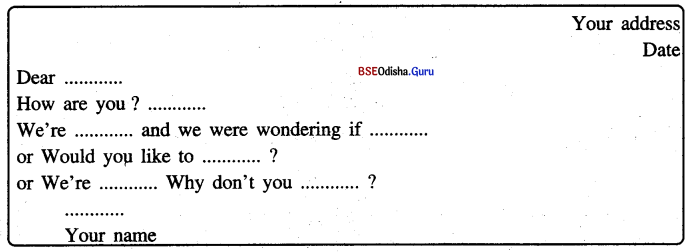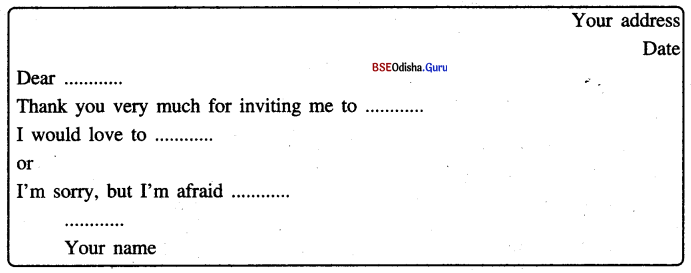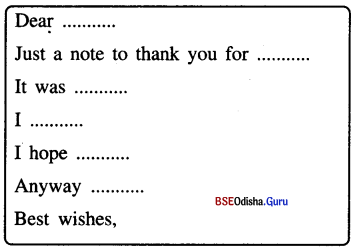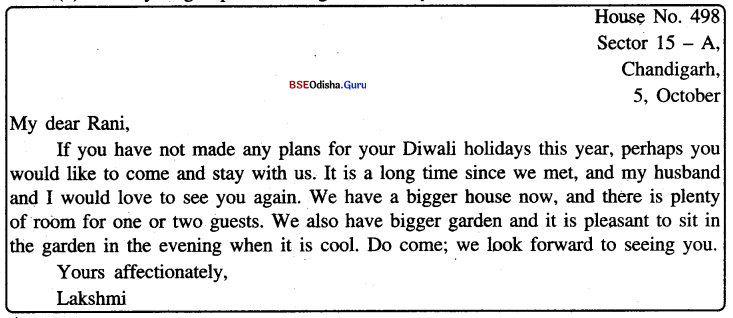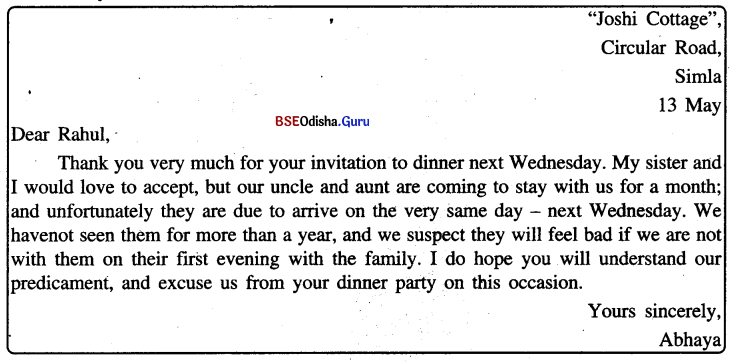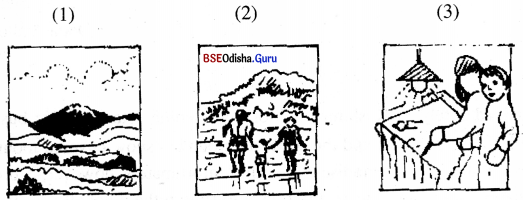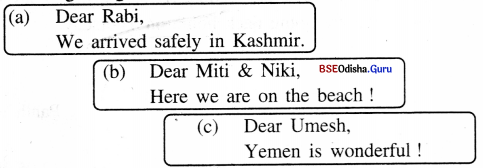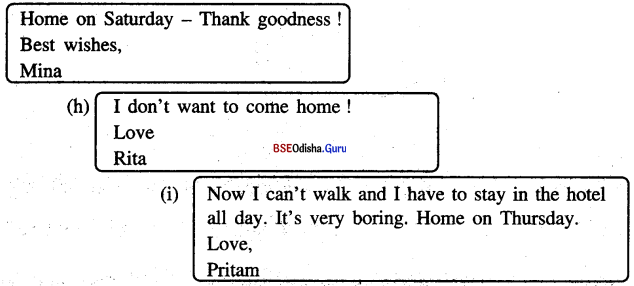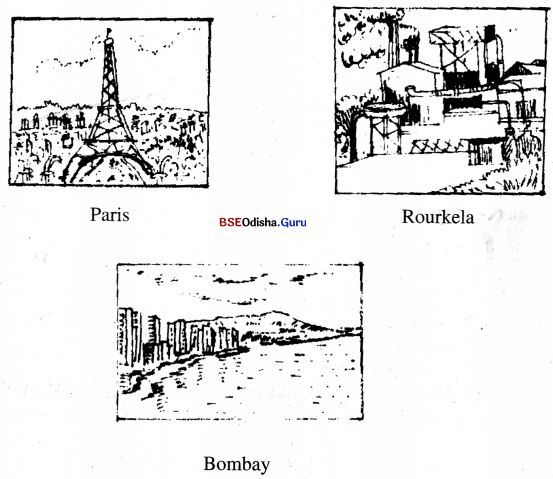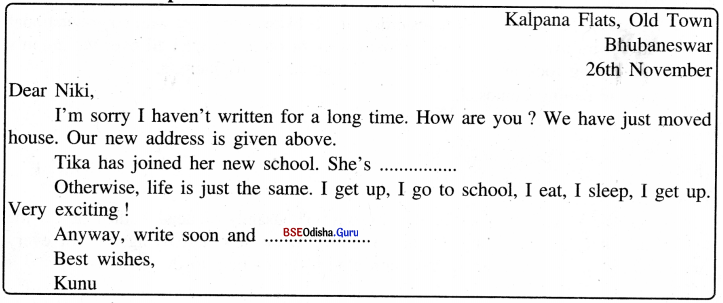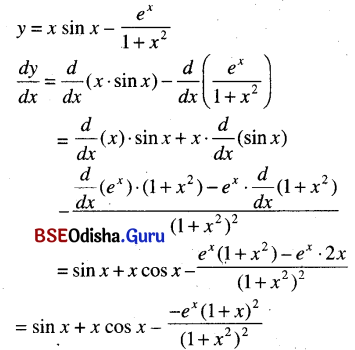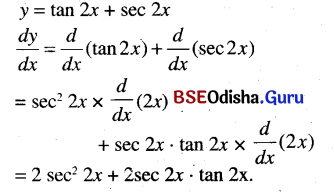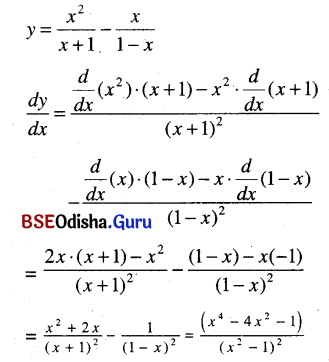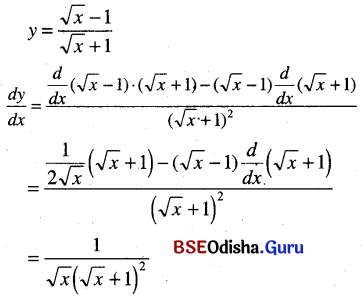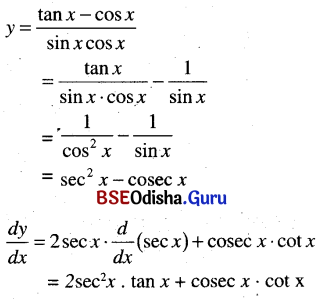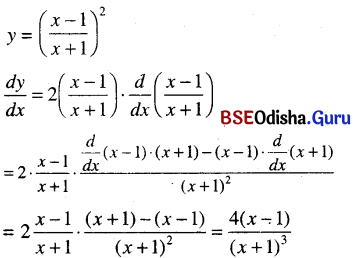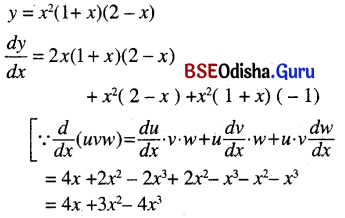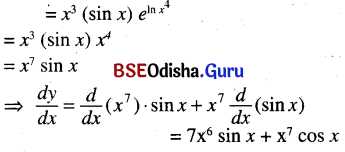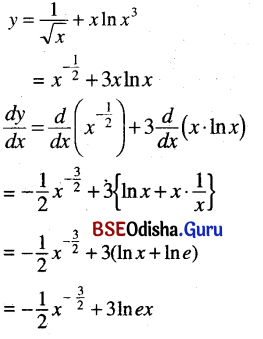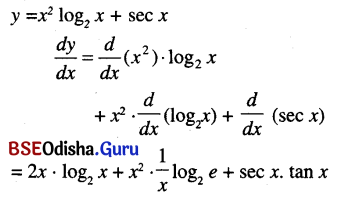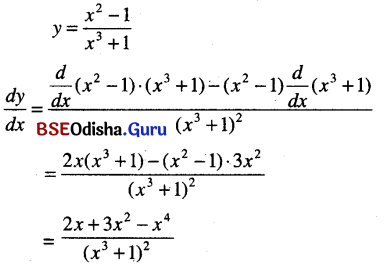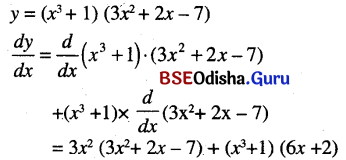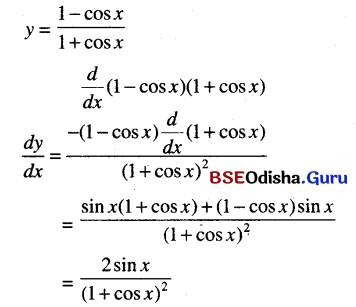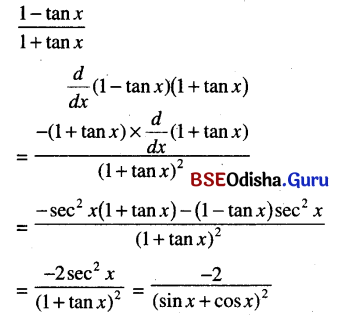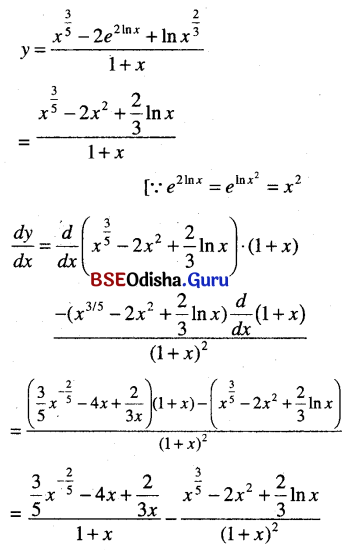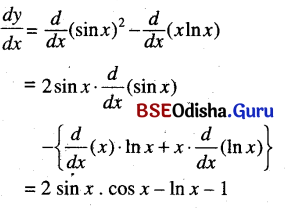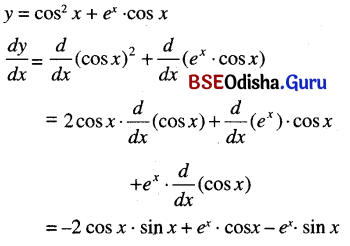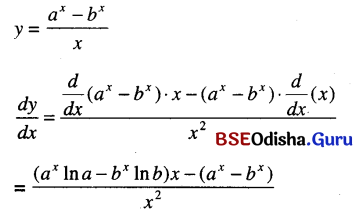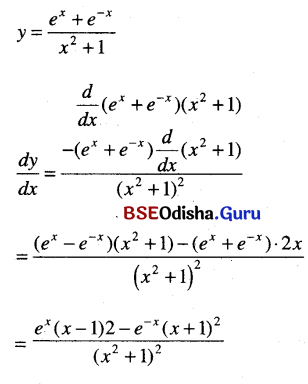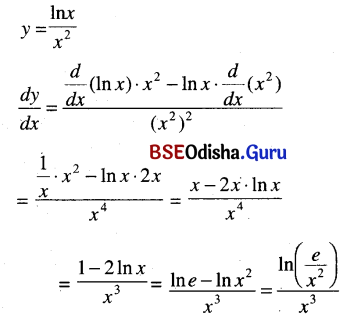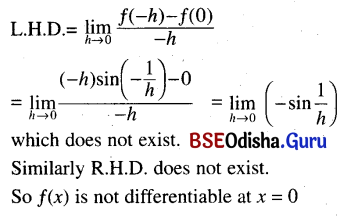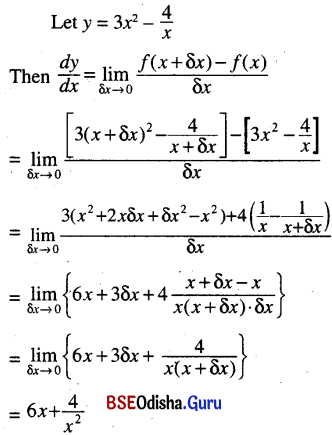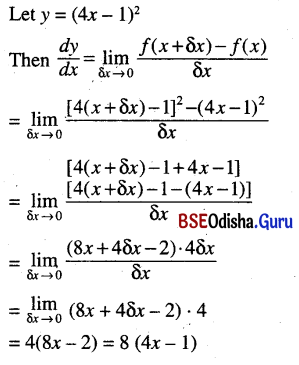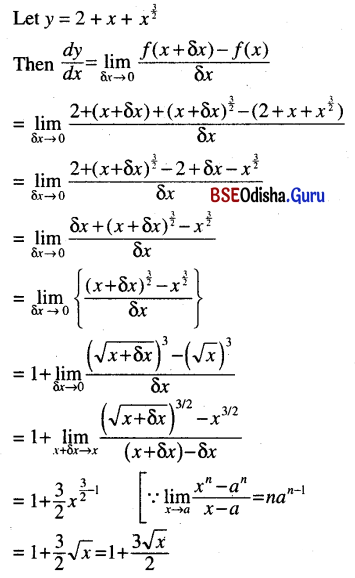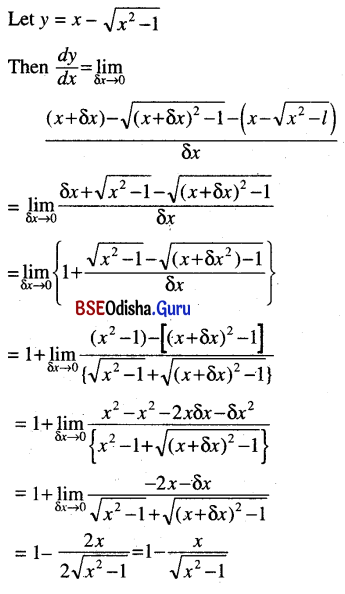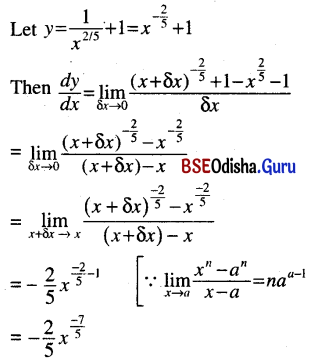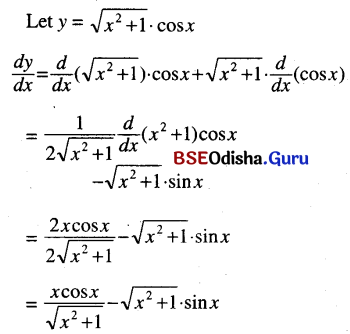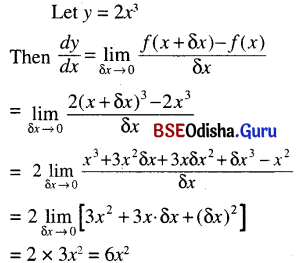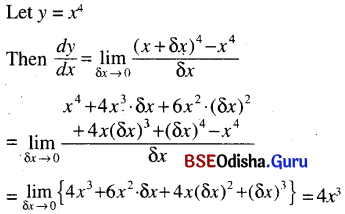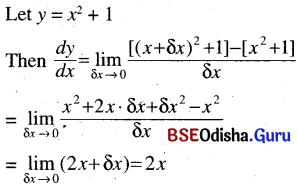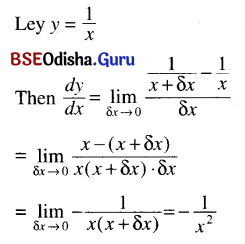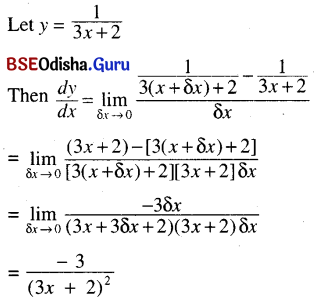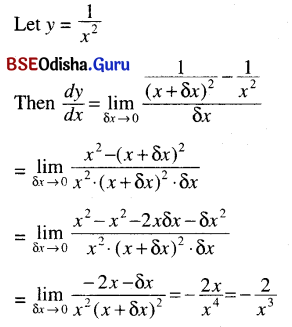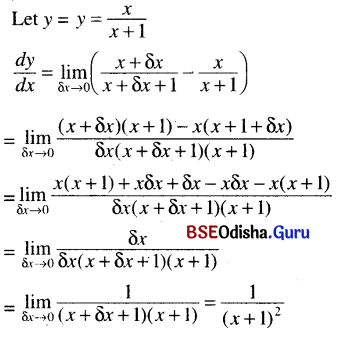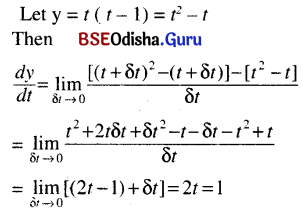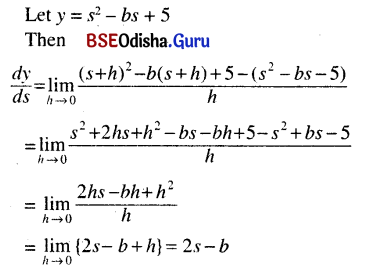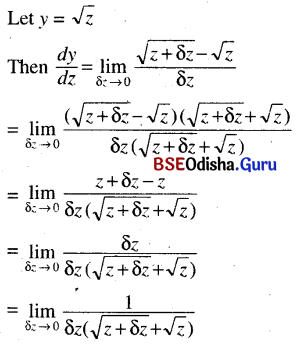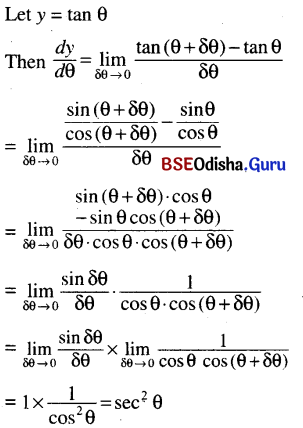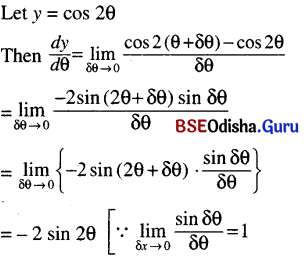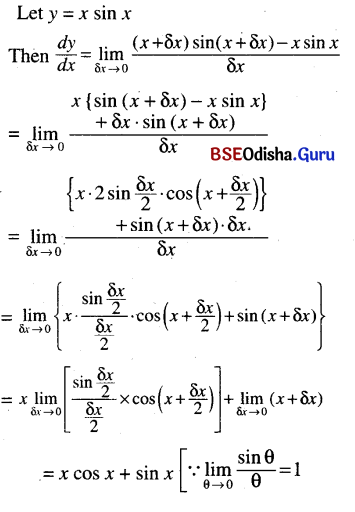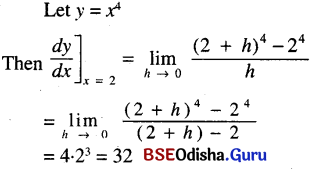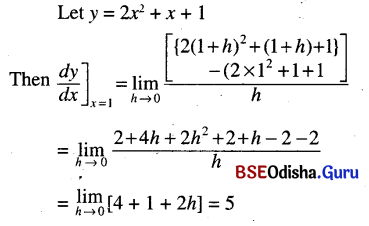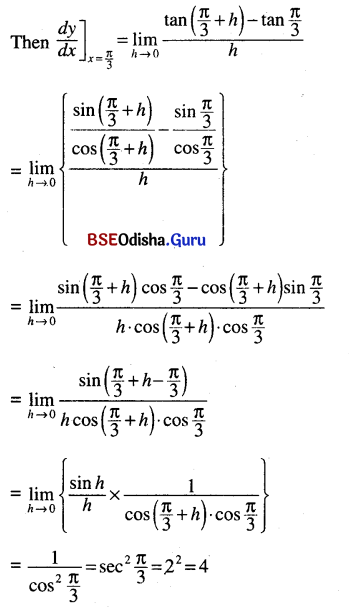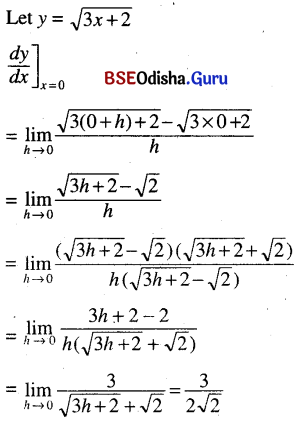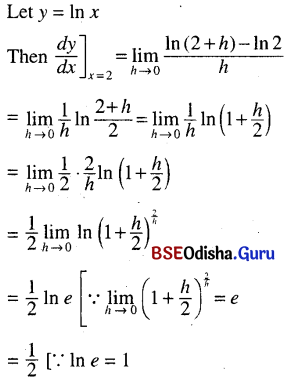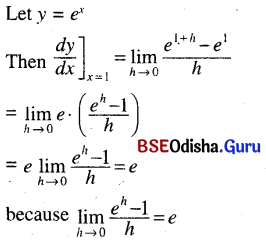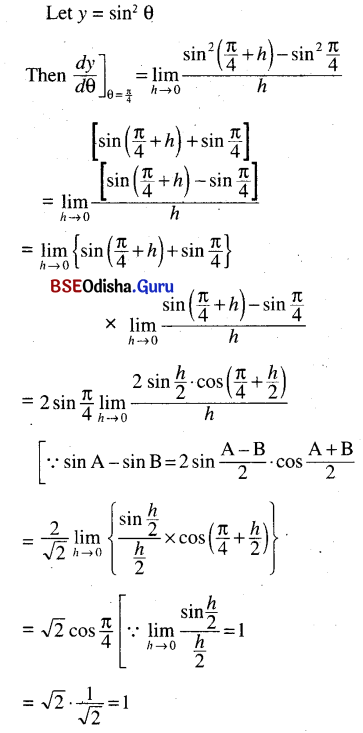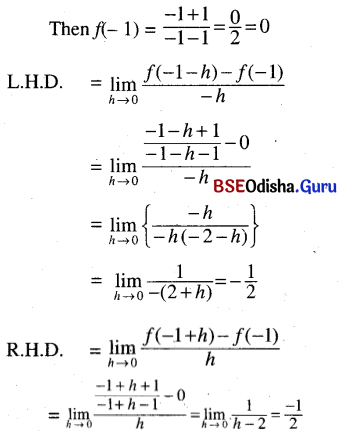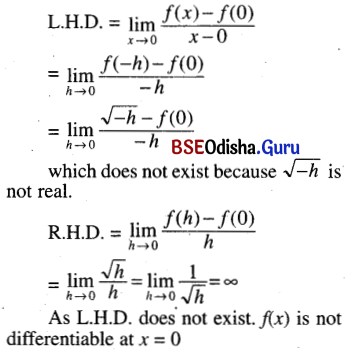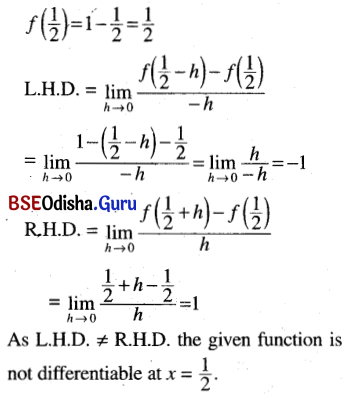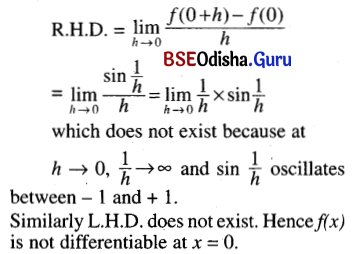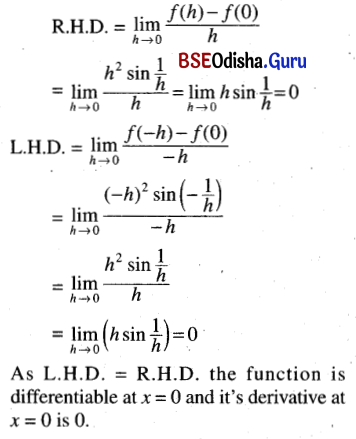Odisha State Board CHSE Odisha Class 11 Invitation to English 3 Solutions Writing Argument or Persuasion Textbook Activity Questions and Answers.
CHSE Odisha 11th Class English Writing Argument or Persuasion
2.4 Argument And Persuasion
Argument is that form of writing the main purpose of which is to persuade your readers (or listeners) to adopt a certain attitude, point of view, or course of action.
Read the following views, expressed by six different speakers, on the importance of English in India, in a debate in Femina.
a. Years ago the sun did not set on the British Empire, but the sons and daughters of India still speak English. ‘Please’ and ‘sorry’ are very much a part of our vocabulary. In most’states higher education is imparted in the English language. The white man’s language still holds the same fascination today as they did a century ago. More Indians are speaking and writing in English than ever before. A separate class of Indo-English writers, acclaimed internationally, exists today. Telephone directories, advertisements, films, music, etc. are in English. Hence, the language has been integrated into our culture.
b. English is an important language in India today. For all important business transactions, paperwork and documentations is in English (like banking, shares, certificates). The gifts we have received from the British are the postal and telegraph services, railways and the English language. As the industrial revolution first took place in England, most of the mechanical engineering terminology is in English. For instance, there is no Hindi equivalent for the term ‘internal combustion’. It is very important to know English.
c. Knowledge of English language has helped me to communicate not only with my audience abroad but even with Indians of various states. English is an Indian language. If Indian states try and promote their languages, there is nothing wrong in it. But at the same time, English language and literature should not be neglected. It is an interesting language with a rich literature.
d. English is an Indian language. Any Indian who is slightly educated understands English, It is the langauge of science and technology. It connects us with the world. In India, people who know English often dominate non- English speaking Indians. There is no harm in learning and speaking in English, but to follow western culture along with the language is not appropriate.
e. English is one of the languages spoken by Indians. But it is wrong to believe that to achieve or to get a job one must know English. Most people in India feel that to earn their bread they should know English. In Germany, China and Japan people hardly understand English. Among the Indians the ‘mental slavery’ to English still exists.
f. It is a wrong belief that English is an important Indian language. Only two percent of Indian speak it. In fact, it is a language that often leads to complexes. I remember very well when the well-known Russian writer. Rasool Humzatov came to Delhi and narrated his poems, not in English or Russian, but in the regional language. Because he was proud of it. We Indians do not have enough respect and love for our language. Personality, even when I meet people who are well-versed in English, I speak in Hindi.

It is important to dispel the guilt complexes regarding Indian languages, that all of us have.
The main points raised by the speakers are noted below.
(i) English is the language of higher education.
(ii) The language of international communication.
(iii) Only 2% Indians speak English.
(iv) The language of science and technology.
(v) The belief that one can easily get a job or achieve success is not always true.
(vi) People in China, Japan and Germany hardly understand English.
(vii) Self-respecting people respect their mother tongue/dialect.
(viii) People in India need English.
(ix) Early education of a child must be in the mother tongue.
(x) Indian languages including Indian culture get neglected.
(xi) Language of communication inside India.
(xii) Language of business, commerce and advertisement.
Note that some of the arguments are in favour of English and others against English. Put them in two separate columns, as suggested below. The first one has been done for you. Think, and add your own points.

Answer:
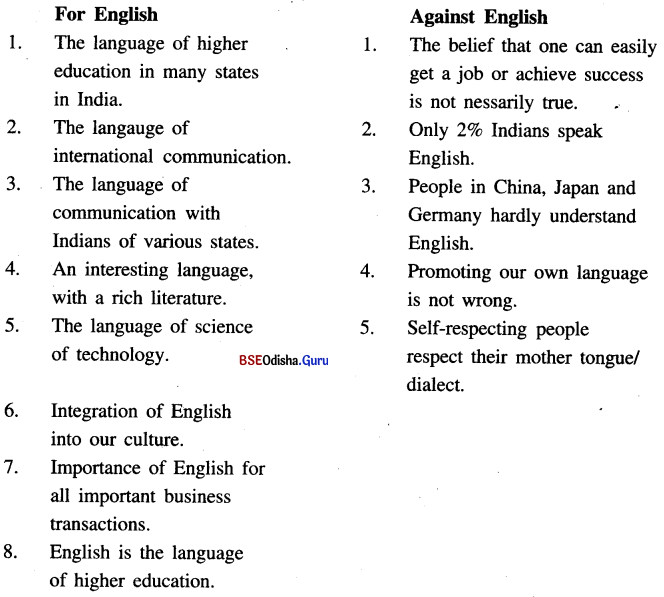

Activity 36
We have a number of arguments here, both for and against English. Can you now reach a definite position of your own, after considering both sets of arguments ? Try to produce your own arguments to counter those presented by the speakers : for example, you could argue that English can be replaced by Hindi for the purposes of communication within India, etc. Write a paragraph on any one of these points.
Answer:
One of the main arguments in favour English is that people in India need English. But, in my view, this is not correct. We should know that people in China, Japan and Germany hardly understand English. Nevertheless, they are more prosperous than India. Of course, lately China has felt the importance of English. English is a foreign language and not one of the soil. Only 2% Indians speak English. English has become a medium of education in our colleges and universities.
This is doing an incalculable harm to the proper intellectual growth of students. A fast majority of students fail to understand the lessons imparted through English. The very thinking and understanding of the student is stunted under the weight of an incomprehensible language. The spread of English also hinders the growth of Indian culture. Lastly, though not the least, it can be said that there should be an end to ‘the mental slavery’ that still exists among the Indians.
Activity 37
(i) Given below are some of the views expressed by different speakers on the topic “The Reading habit is dying out” in Femina. Read through each of them.
(ii) Note that some speakers accept the proposition while others reject it. There is one speaker who offers suggestions to improve the reading habits of children. Try to identify the main points in each speech and arrange them under three headings :
(1) in favour of the proposition
(2) against the proposition and
(3) suggestions.
(iii) Add your own points. Be clear about the points you support and those which you do not support.
(iv) Before you start writing on the topic, think of an appropriate beginning. For this, see how the speakers begin their speeches. It will help you in starting your paragraph.
Now read the following speeches.
(a) I agree that reading is a dying habit. A lot has been already written about how television is rapidly stealing a march over reading. The sale of books is diminishing, while the launching of a new television channel has become a regular affair. A lot of children find other ways of passing their leisure hours because they have simply not discovered the wonderland of books and the pleasure it offers. At the age of two or three, they are taught how to read, but as they grow older, they are not taught to use reading for entertainment, information, and knowledge.
Brought up on a diet of textbooks, the child does not get to read anything else. Naturally, when a child finds that the textbooks he/she reads are dull and boring, he/she never feels like reading anything else. There is no addiction more pleasurable than getting hooked on books. Parents should encourage their children to read, but let me point out that most adults don’t read themselves; a cursory glance at the day’s newspaper is all the reading they seem to do. How can they expect their children to develop the habit of reading, when they themselves sit down in front of the TV set in their free time ?
(b) It is definitely true that reading is a dying habit, and one of the major reasons for this decline is the advent of the electronic medium. Even the reading of newspapers has been limited to that headlines and few introductory paragraphs. If one gets the news and can watch a few soap operas for entertainment just by pressing a few buttons, why should anyone then take the trouble of reading? But that’s very sad for we’re losing the very flavor of life.
Just sitting like robots in front of a box that gives us information like robots, like listening to it, watching it — these things kill our intellectual faculties. We’ve failed to realize that the lasting impact on the mind can be provided by the written word alone. Reading gives one time to ponder over things and it enriches our vocabulary too.
(c) The habit of reading is increasing day by day. There is a boom in publishing in India, and our sales have doubled in the last few years. Indian authors are creating ripples in the international literary scene. Our company has linked up with Harper Collins and Pan Macmillan, so international books are being made available to Indian readers at a reasonable price.
Access to technology and infrastructure has made things easier for publishers. It has led to innovations in packaging and graphics. Focused designs have made the appearance of books much more attractive. Printing quality too has improved vastly. The reader today has a good variety to choose from.
(d) I don’t totally agree with the statement that reading is a dying habit. As a librarian for nearly 27 years, I’ve seen students and research scholars. I feel that my reading habit has changed a lot. Students prefer to read magazines and newspapers rather than books. Earlier, during the summer vacations, many students did come to the library for general reading.
today, they have various other options like listening to music and watching television programs. But the library is never empty. Light reading may have declined, but academic reading related to assignments, references, and research, has not.
(e) I don’t think that reading is a dying habit – but that parents and teachers have to play a very important role in inculcating this habit, for they are the role models for children. Since the child has more grasping power than an adult, it is the right age to develop this habit. It is important for parents to spend quality time with their children, to read aloud to children, to listen to what they’ve to say, and answer their questions.

| For the proposition |
Against the proposition |
| (i) Television has adversely affected reading |
(i) Students are not being encouraged to read |
| (ii) Children pass leisure hours in other ways than reading. |
(ii) Reading leaves a lasting impression on the mind and enriches one’s vocabulary. |
| (iii) Dull text books discourage the reading habit. |
(iii) Habit of reading is incresasing and sale of books proves this. |
| (iv) Adults don’t read them selves and thus are not good role models. |
(iv) Books of varied kinds are being read now. |
| (v) Reading materials are prohibitive in costs. |
(v) Parents should spend. their time with children; reading is not a dying habit. |
|
(vi) Light reading has declined but not academic reading. |
The Reading is a dying habit:
Most people believe that the reading habit is dying out and they are right about it. Even a cursory survey among students reveals that they spend more time watching television than reading books, except during examinations. Besides, children spend their leisure in many other ways rather than reading books. In addition to this, today’s textbooks are so dull and boring and studying has been made such a burden that children or students don’t have the motivation to read books.
Moreover, adults themselves do not read many books. They don’t serve as role models, instead they too spend more time on the T.V. Last but not the least, the cost of books have today become prohibitive. On an average, a book costs seventy-five to hundred rupees. It is all these factors that have made reading a dying habit. It is right that students are not being encouraged to read, that reading is something worthwhile, but suggestion that since sale of books have increased and therefore reading has increased is to miss the point.
A comparative study of sales of electronic consumer items and that of books reveal that the sale of electronic goods is twice as much as those of books. Moreover, those engaged in academic reading are a very negligible minority and they can’t be counted with those who read for pleasure. Similarly the contention that varied books are 1 being read does not prove that there are many readers. This attests the fact that today interests of people have become diversified and therefore to cater to their needs various kinds of books are being published and sold.
For example, a century back we had no books on computers but today there isn’t any library or bookshop which does not possess books on computers. Thus, we can safely conclude that reading is a dying habit. The television is now reining supreme over the minds. The T.V. is ubiquitous even in the smallest of homes while illiteracy is rampant in a place like India.
Activity 38
1. The following are the main points that emerged in a debate on the topic “The presidential form of government is more suitable for our country than the parliamentary form”. But the points are all mixed up. Arrange them under two separate heads for and against.
a. Will ensure strong centre…. curb divisive tendencies.
b. Deprives people of power to elect, recall, approach representatives,
c. Will quicken change towards removal of poverty, equal opportunity, greater production, prosperity.
d. Makes ruling sections/groups more powerful….discourages loc*t! or minority talents, culture, distinctions,
e. Concentrates authority….leads to dictatorship.
f. Reduces expenditure on wasteful elections, political propaganda, party politics.
g. Denies fundamental freedom….curbs human rights; builds fear, cowardice.
h. Simplifies decision making and brings about uniformity, can lead to greater discipline, better economic achievements. Present system breeds inaction, indiscipline, strikes, poor results.
i. Suited to Afro-Asian temperament; recent events prove it too.
j. Is against Indian democratic traditions.

2. First, make up your mind regarding the line of argument that you would like to follow. Second, think how to begin. Then, develop the outline into a paragraph : you are free to add your own points to the given ones.
Answer:
For:
a. Will ensure strong centre… curb divisive tendencies.
b. Will quicken change towards removal of poverty, equal opportunity, greater production, prosperity.
c. Concentrates authority.., leads to dictatorship.
d. Denies fundamental freedom… curbs human rights: builds fear, cowardice.
e. Suited to Afro-Asian temperament; recent events prove it too.
Against:
a. Deprives people of power to elect, recall, approach representatives.
b. Makes ruling sections more powerful… discourages local or minority talents, culture, distinctions.
c. Reduces expenditure on wasteful elections, political propaganda, party politics.
d. Simplifies decision making and brings about uniformity, can lead to greater discipline, better economic achievements. Present system breeds. inaction, indiscipline, strikes, poor results.
e. Is against Indian democratic traditions.
The presidential form of government is more suitable for our country than the parliamentary form.
It is just about 50 years since our country has been an independent nation. And numerous problems have been plaguing our nation. This has set people thinking in some quarters that there is a need to change our form of government. That would be like throwing the baby with the bathwater. The nation is just a baby with a particular structure and it need not be changed just because it has not grown and matured. In short, the parliamentary form of government does not need to go.
It is argued that the presidential form of government will ensure a strong centre, curb divisive tendencies, quicken changes in economic, social and political spheres, avoid wasteful expenditure on elections and party politics, simplify decision making and lead to greater discipline. There is no denying this fact. A presidential system does quickly bring about such changes but in the long run, as history has time and again shown, proves counter-productive and disastrous.
The rules of Mussolini, Napoleon, Stalin and Hitler are all outstanding examples of this trend. The presidential form of government makes the state larger than the individual, makes personal freedom a dream and gradually stamps out human rights. Finally, it leads to totalitarianism and dictatorship. The fear of facing a 1984-like scenario is ever alive in a presidential form of government. Oligarchy, plutocracy, stratocracy, autocracy and despotism are ominous realities in a presidential form of government.
History amply records this truth. The KGB and the communist party in USSR, the Nazi Party and the storm troppers in Germany are good examples of what happens when power is concentrated in the hands of a few or in one man’s hand. Moreover, a presidential form of government will gradually crush minority talent and minority culture and impose a cultural homogeneity. This would be disastrous in a multiracial, multicultural, multi-lingual, pluralistic society like India.
Its ethos would take the beating and its beauty will be lost. india has existed for ages as a pluralistic society whose greatness has been its power to assimilate and unite in its fold diverse cultures and religions. Tolerance and non-violence have been its mainstay and to abandon them would mean going against the grain of our character as a nation. Such a forced change would prove disastrous for the nation. Hence the parliamentary form of government with its respect for individual right, and its inclination towards unity in diversity, should be given the thumbs up.

Activity 39
In several cities, television has come to nearly all homes. Some people welcome this while others find it a bad influence and an expensive addition to the drawing-room. Some believe it creates problems – indiscipline, loss of sleep, reduced attention to homework, the danger of bad movies as bad models. Others consider it a good ‘teacher’ – brings vividly a lot of new information, helps farmers, makes stories interesting, provides both entertainment and instruction, saves money spent on bad/indifferent films, food at restaurants, etc., keeps the family together at home. A television company has organised an “essay competition” on the subject ‘Television, your new friend’. At the same time, the ‘Society of Cinema-goers’ has invited essays criticising television. Write on each topic, presenting your views on television, and its uses/abuses.
| Points for |
Points against |
| i. ______________ |
i. ______________ |
| ii. ______________ |
ii. ______________ |
| iii. ______________ |
iii. ______________ |
| iv. _______________ |
iv. _______________ |
Answer:
| Points for |
Points against |
| (i) A good teacher |
(i)Creates problem, indiscipline, loss of sleep etc. |
| (ii) Provides both entertainment and instruction |
(ii) Reduces attention towards homework |
| (iii) Leads to the togetherness of the family members |
(iii) Bad movies act as bad models |
| (iv) Saves money spent on food at restaurants |
(iv) An expensive addition to the drawing room |
Answer:
Television: its uses and abuses :
Television has truly made the world a global village. Its all-encompassing reach to the remote comers of the globe has made omnipresent medium. Moreover, the fact that it is an audio-visual medium, makes it all the more effective as well as alluring. Thus, it could be put to a wide variety of use. But it is more abused than used. In a developing country like India, television has become the medium by which literacy is spread all over the nation.
Students tune into educative programmes like the country-wide classrooms of the University Grants Commission and Krishi Darshan Programmes cater to the needs of farmers. Similarly programmes on family planning, health awareness, AIDS, nutrition baby care are beamed across the country. Forecasting of weather and climate helps fishermen, farmers and all kinds of people to plan out their future course of action. Storm warning, earthquake warnings and flood warmings have had a greater impact because of visual and graphic details of facts.
Above all, television has become the supreme medium of infotainment. Watching the news or watching a soap opera, a cookery special or a sports channel, a movie or an engaging group discussion, a sermon or a song, the television has it all, controlling and dispersing knowledge all over the world. And yet unconsciously the television is ruling us, stealing our time and making morons out of us.
A couch potato is no more a rarity. A great thinker enumerates the abuses of television as follows. First, television makes people emotionally insensitive. The images of sex and violence that are projected on the screen gradually drive out all human feeling from us and renders us indifferent to such incidents in real life. We accept them as normal. A murder, a rape, a dead body no more shocks us as it did earlier generations. We are gradually being denuded of humane feeling.
Second, television makes viewers morally uncritical and impairs their sense of judgement. With a book, one reads and then ponders over what it has stated but the television gradually impairs this sense of evaluation in us. It hits us so powerfully and forcefully that it bypasses our head and rules our heart. Third, television destroys our ability to concentrate for long on anything. Kids who are brought up on fast moving scenes and cartoon characters thus do not find their teachers exciting, their books seen dull and boring.
Quickfix solutions, capsule presentations, ready-made notes, fast food are the order of the day and television is one great factor in enhancing the pace of life and thereby reducing concentration spans of people. Fourth, television sets up such role models and projects such lifestyles which young people follow with zeal. They are led to believe that all that life is about is having girl-friends, wealth, fame and power. Finally, T.V. is creating dislocations in centres of authority.
Most often a person becomes authoritative because he or she is well- known. Thus a cricket star or a hero tells you to keep away from AIDS and has your attention no matter what he does in his personal life. Thus, his voice is powerful while that of a celibate priest’s is not. As a result there is total psychological, moral and academic confusion in our culture. T.V. is not bad just as money is not bad. It’s the way one uses it that matters. Let the T.V. be our servant and not our master.

Activity 40
Here are a few more topics for argumentative writing. Prepare outlines and write on each topic.
i. Men and women should/should not be paid equal wages for equal work.
ii. Prohibition will save the country from destruction/Prohibition goes against individual freedom. (Prohibition-disallowing by law the making and sale of alcoholic drinks.)
iii. Cricket commentaries are a national evil./ Cricket commentaries provide entertainment and education.
iv. History breeds narrow-mindedness. It should not be taught in schools/colleges.
v. Driving licenses should not be issued to students in schools/colleges.
vi. Girls should not marry before they are twenty, boys before they are twenty-five.
vii. College education must be made free.
Answer:
(i) Men and women should be paid equal wages for equal work.
For:
(a) Equal pay for equal work ensured in the Indian Constitution.
(b) Women do not work lesser than men/women do equally good work as men.
(c) It is the quality of work which matters and not who did it/wages are given for task completed, and not because someone did the task.
(d) Pay hike and promotions are made on grounds of merit and not on basis of gender.
Against:
(a) Women are less intelligent than men.
(b) Women work less than men.
(c) Women cannot do certain kinds of work because they are not physically fit to do it.
Gender differences have curbed the rights of women in a patriarchal and male dominated society. As a result, in some quarters it is still held that women should not be given equal wages as men. This kind of primitive thinking is a result of male chauvinism and is not justified by facts at hand. It has nothing to do with the question of women receiving equal wages as men. Patriarchal society has always held women as inferior to men. As a result, women were thought to be less intelligent than men.
This argument was thus put forth in favour of giving lesser wages to women. The contention is however not borne out by facts. Women have proved themselves the equals of men in almost all professions and spheres of life whether in science and techlology or in the humanities and social science. As more and more opportunities are being given to them women are proving themselves equal for men in every sphere of life.
Admittedly they are biologically made less strong than men but now-a-days work requires more brain and, therefore, the question of equal pay for equal work arises in the context of what work woman is doing and not what she is not. Besides, women Boxers, wrestlers, athletes, weightlifters. Marathoners etc. have proved that they too can do things like men. However, a strong case can be made for the question of equal pay for equal work for women.
First of all, just as equal opportunity for all is enshrined in our Constitution, so also equal pay for equal work is enshrined in our Constitution. A just and fair society will always provide equal pay for equal work for that is the universal law of natural justice. Considerations of caste, creed, race and sex should never come in way of a person’s wages. Secondly, it is another natural axiom that the meritorious be rewarded. If the woman is equally qualified as man, if she does work equal to man, then she deserves a wage equal to it, as men do.
Pay hike and promotions are decided on merits of individuals and not on considerations of caste and creed or sex. Finally, it may be argued that women in many ways are better than men. They are more sincere, committed, honest, responsible and hard-working than men. Case studies of working men and women has proved this. Thus, women deserve equal pay for equal work because they are in no way inferior to men in their qualifications and in their work.

(ii) Prohibition will save the country from destruction / prohibition goes against individual freedom.
For:
(1) Drinkers are bread winners, drinking therefore denudes the bread supply.
(2) Drinkers are physically violent; they indulge in wife beating and also a general nusiance.
(3) Drinking leads to hazardous health problems, the cost of which has to be borne buy family / govt.
Against:
(1) Prohibition curbs freedom of an individual.
(2) Prohibition breeds illegal trade in liquour.
(3) Prohibition results in loss of revenue to state.
Prohibition will save the country:
Drinking and smoking are two-sides of the same coin. They are equally dangerous and hazardous not only for the individual but also for the nation as well. Therefore, it is necessary to implement and ensure prohibition, for this alone can save the country from destruction. The opponents of prohibition are of the view of that it curbs freedom of the individual. They are right but of course individual freedom has always been curbed by social limitations to ensure that every other individual enjoys his or her liberty.
A man has the right to walk on the road as long as he does not infringe anybody else’s right to walk on the road. If drinking results in social disharmony, then it must be prohibited. A doctor prescribes a bitter pill to heal a person in spite of the protests of an individual. A whole individual can be a useful citizen. Secondly, anti-prohibitionists talk of the breeding of illegal trade in liquor.
True indeed: prohibition breeds an illegal trade in sale of liquor and the very purpose of prohibition is thereby defeated. But illegal trade can be prevented, an alert police, a cooperative public can detect and stop this trade. This has been proved earlier in Andhra Pradesh where women enforced prohibition and curbed illegal trade. Finally, there is the loss of revenue to the state. This too is true. But it can be argued that the cost of having host of diseased drinkers is higher than that of loss on revenue due to prohibition.
It is fallaciously thought that the cost of treating a man with drinking related health hazards is borne by families of those individuals but the national loss in this context is not taken into account. Moreover, less corruption and generation of revenues in other trades can nullify the loss accruing from prohibition. Non-prohibition on the other hand, has high costs in terms of familial, societal and national loss.
Consumption of country liquor by males who are bread winners in lower income groups have left families bereft of the basic needs of food, shelter and clothing. Broken families, loss of childhood, denial of education and health are the result. The social costs in terms of crime, prostitution, child labour, drug addiction, and a host of other problems emerging from such households, are immense.
Moreover, drinkers gradually lose self-esteem, self-confidence and slowly lose skills. They become irresponsible and unfit for work. This happens even among people of higher income group. Their erratic behaviour, tendency to shimk from duty and going on unauthorised leave hurts sectors in which they work thereby adding to the national loss. Finally, it may be reiterated that the cost of rehabilitating a person with drink- related health hazards is exorbitant.
Whether it is the government that finances this, the company or the individual, all of them result in a national loss. On the other hand, the money saved by individuals on enforcement of prohibition results in per capita gain though it may not accrue to the revenue of the state. Prohibition is therefore a better option than the freedom to drink. For prosperity of the family leads to prosperity of the nation.

(iii) Cricket commentaries are a national evil / Cricket commentaries provide entertainment and education.
For:
– Is a waste of time
– A hobby of the leisure class
– Take too much air time and T.V. time.
– Does not benefit the state or nation.
– Denies equal weight to other sports.
Against:
– Commentary is an art.
– Commentary provides entertainment and education.
– Commentaries provide job and earn revenue.
The very mention of cricket commentaries as a national evil gives rise to passions because the game of cricket is the favourite of a large majority of the upper and middle classes of people. Nevertheless a reasoned analysis of its pros and cons reveals that cricket as well as its commentary is a national evil. First of all cricket commentaries involve a colossal waste of time. During a cricket match, offices are deserted and so are schools and colleges.
People in factories and business establishments slow down work and sometimes even stop working. Moreover, a game of cricket takes a lot of time. A test match spans three to five days while the one day game consumes 8 hours. An avid fan of cricket who listens to its commentary pays little attention to work because the match is held mostly during office hours, school and college hours from 9.00 a.m. to 4.00 p.m.
Time is money and therefore the damage to the economy during a cricket match is irreversible. On an average if a man watches cricket for 4 hrs. a day for 60 days, there is a waste of 24 hrs or a total of 10 days in a year. If the number of those watching or listening to commentaries is even a minimum of 2 million then there is an astounding waste of 20 million days.
The corresponding loss to the economy is therefore colossal. Besides this, cricket commentaries occupy too much of air space as well as as visual space on the T.V. The radio and the television could be used to broadcast other | programmes of social interest during this time. An even greater lacunae is the unequal media coverage that other sports receive. The priority that is given to cricket by the media and T.V. networks does not encourage sportspersons of other games.
While sponsorers are available to- support cricket matches there are very few sponsorers to support the broadcasting of other sports. Further, the revenue generated from commentaries on cricket matches is mostly 1 deposited in the offices of the T.V. Network which has bought the rights to brodcast the match. Revenue to the state in this context is paltry. Opponents of this view that commentaries are a national evil hold that they are educative and entertaining.
But it may be reasonably shown that their educative value is minimal and marginal. As for entertainment that is a very transitory form Of entertainment. The same can be said of its value as an art. It is art of transitory value and does not have any permanent or lasting effect. As for the contention that it provides jobs, it can be said that employment opportunities as commentators are very minimal, limited only to a few individuals and that it is not to be taken as a profession. Thus after weighing the pros and cons it may be emphatically said that cricket commentaries are a national evil.

(iv) History breeds narrow-mindedness. It should not be taught in schools/colleges.
For:
(1) History breeds crude nationalist.
(2) It is full of crimes.
(3) It provides a confused heap of facts.
(4) It records popular beliefs.
Against:
(1) History is interesting and useful.
(2) It helps us to escape the burdens of life.
(3) It is a sound teacher.
(4) It provides us moral inspiration.
(5) It widens our intellectual outlook.
History generated crude nationalism among the students. It records the glory and achievements of some countries and the failures of others. Germany under Hitler was a case in a point. The students who read it learn nothing. History is a record of war and blood-shed. If we scan the pages of history, we learn a lot about many bloody battles fought among different nations. History takes us to a world where lies a confused heap of facts. It is difficult to understand and analyse them. These facts lack colour.
Above all, it acquaints us with some popular beliefs. There is nothing innovative about them. All these facts mentioned above adversely affect the minds of the people. Therefore, history should not be taught in schools/colleges. We should see the bright side of history. It launches man on a thrilling adventure of a journey to the past. It awakens in him the racial memories that he slumbering in the depths of time. The study of history strengthens one’s faith, however, wavering, in the ultimate decency of things.
History must not be read as a collection of dry and old facts and dates, but as living representation of the past which has a significance for the present. The study of history is interesting, useful and amusing. It helps us to escape the burdens of life. Moreover, history is a sound teacher. The records of the past interpreted in practical by noble men and women, supply moral tonic which must be administered to each generation. Study of this subject widens our outlook. Besides, history makes our intellectual horizon touch new heights. It also sensitizes our minds. Therefore, history should be taught in schools and colleges.
(v) Driving licenses should not be issued to students in schools/colleges.
For:
(1) Driving licenses make the students wayward.
(2) They become law-breakers.
(3) They live in a world of fancy.
Against:
(1) Issuing driving licences to school/college makes them responsible.
(2) They save their time.
(3) They become law-abiding.
Issuing driving licenses make school/college students carefree. They move freely in their bikes/four-wheelers without caring anybody. They become liberty drunk. They never feel the importance of why they have been issued driving licenses. They make use of their vehicles for a constructive purpose. They are young. In the full flush of their youth, they drive recklessly, flouting the traffic rules.
Sometimes they meet with accidents. Some die premature deaths, some escape with a miracle and others suffer fractures. These students find themselves cut off from the outside world when they drive their bikes or cars. On the other hand, we must not be blind to the other side of these facts. School/college students should be issued driving licenses, because they are mature. Fear of parents and accidents makes them responsible. They do not want to waste the latter’s money by misusing driving licenses.
They drive their vehicles very carefully. Time is precious. They save it as a result of using bikes or cars. These students become law- abiding. They are alive to the traffic rules. They understand why they have been given bikes/four wheelers by their parents. In view of these facts, driving licenses should be issued to school/college students.

(vi) Girls should not marry before they are twenty, boys before they are twenty- five.
For:
(1) Girls become highly educated.
(2) They get a chance to fulfil their dreams. .
(3) They enjoy empowerment.
(4) They become independent and are free from the drudgery of household work.
(5) They become ideal mothers and wife.
(6) Boys are no different.
(7) They want higher education.
(8) They become independent.
Against:
(1) They should be educated.
(2) Marriage before 20 makes them typical house-wives.
(3) They are immature to understand the ways of the world.
(4) They go astray.
(5) They are deprived of enjoying impowerment.
(6) Boys cannot be highly educated.
(7) They cannot be independent to the core.
Girls should be highly educated in word and spirit. Very few girls continue their studies after their marriage. They try their best to fulfil their dreams and achieve then- goals. Today we see many a woman enjoy empowerment. They have become high- profile entrepreneurs, bureaucrats and academicians. They are now successful political leaders. They brim with confidence. They become independent by earning their livelihood. Educated wives get a respite from the monotany of their household works.
Education makes them conscious of their duties to their husbands and children. They never become a burden on society. Boys are no different from the girls. A certain age is indispensable for building their career, but marriage before 25 puts bars in fulfilling the dreams, hopes and aspiration. Failures to achieve their goals drive them to a state of frustration. As a result of higher education, they earn handsome income and become assets to their families.
On the other hand, if the girls marry before twenty, they cannot enjoy the things they want. They become neither highly educated nor enjoy real empowerment. They become typical house-wives and don’t get a chance to experience what is happening in the external world. Frustration grips them. They don’t understand the language of independence. They often go astray and as a result, bring disgrace to society. Boys suffer the same fate.
Their marriage before twenty-five seldom allow them to go for higher education according to their will. They soothe with frustration for not achieving their goals. They fail to rise to the expectations of their parents. They are shorn of confidence. They can’t be fiercely independent. Therefore, girls should not marry before they are twenty, boys before they are twenty-four.

(vii) College education must be made free.
For:
(1) Scope for higher education, irrespective of caste, creed or colour.
(2) It makes everyone confident.
(3) It leads to independent among the students.
(4) It provides broader exposure to the outside world.
Against:
(1) Ordinary students have no value.
(2) Free college education creates indiscipline.
(3) Wastage of public money.
(4) There is no room for further academic development, there is no much fund for research.
Free college education provides a scope for higher education for all sorts of students, irrespective of caste, creed and colour. They all feel a state of what higher education is. This makes them brim with confidence. Some of the poor students get a chance to dream big and are determined to achieve someting in life. College education makes them independent, because, they get a chance to earn their livelihood.
They are now exposed to the happenings of the external world. As a result, they can contribute to the well-being of their country and fellow-beings. On the other hand, the issue has a darker side. Free college education encourages many ordinary students to sit in their classes. They should have been given vocational education. Instead of reading sincerely, they create indiscipline in the college and as a result, spoil the academic environment.
Besides, free college education costs our public exchequer beyond imagination. The common tax-payer’s money is injudiciously spent. Academic development suffers a serious jolt as a result of paucity of finance. Research work lags far behind. In view of these facts, college education should not be free.
![]()


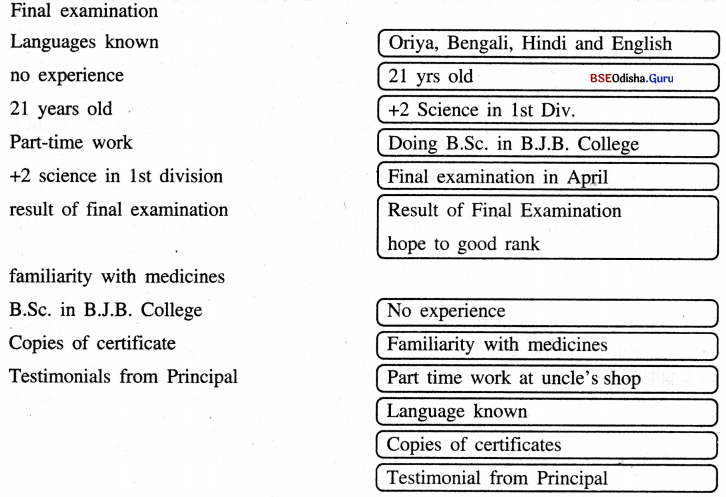
![]()
![]()
![]()
![]()

